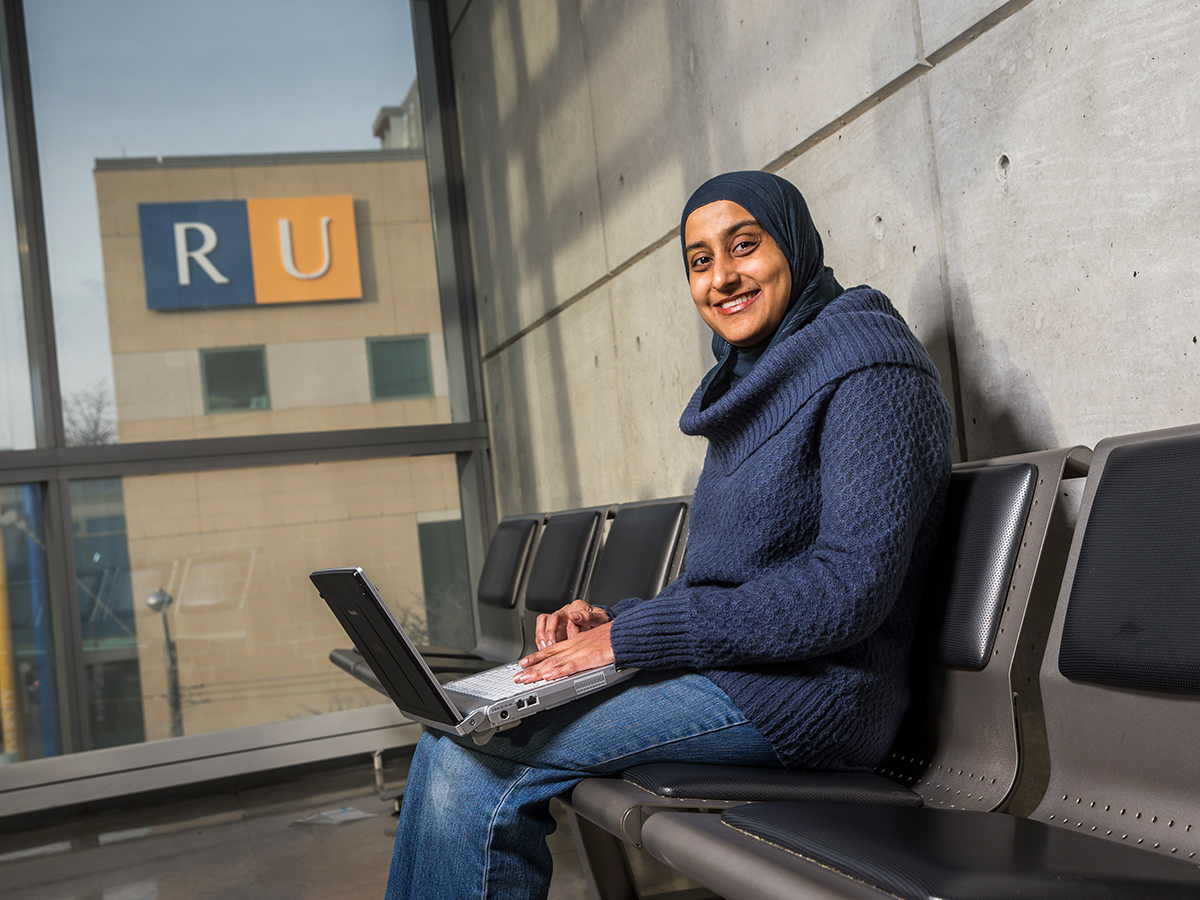Making More Space for Equity Groups in Computer Science

Growing up in Pakistan, Fatema Rashid was raised in a culture where education was inaccessible for most women. A child of educated parents with liberal values, Rashid not only excelled in high school but was admitted to the National University of Computer and Emerging Sciences in Karachi. To get there, she needed financial support from her family. She also needed to know that she could extend her education.
“I was always encouraged in my studies,” she says. “But this is not true for a lot of girls and women around the world. My family was not typical in Pakistan. And my choice of computer science was certainly not typical for a woman – and still isn’t. I was a strong math student and saw computer science as a great opportunity. But I’m well aware that I’m in the minority, both as a woman from Pakistan and a woman in computer science.”
Rashid earned her bachelor’s degree in 2004 and then moved to Toronto in 2006 to begin her studies at Ryerson University the following year. In 2015, she became the first PhD candidate in Ryerson’s doctoral program in computer science. Along the way, she had exceptional academic support from mentors like Isaac Woungang and Ali Miri. At the same time, she experienced a gap in supports when she launched a job search.
”When I started at Ryerson, I was a new immigrant, wife and mother. I didn’t know anyone, and I didn’t know how anything worked. Now, as a postdoctoral fellow in the Department of Computer Science and an instructor at The Chang School, I’m focused on encouraging women to enter this field. I understand at a personal level the family, social, economic and gender barriers that exist for women in higher education, and particularly in male-dominated fields like mine.” According to Miri, "Dr. Rashid is one of the most determined and hardworking people I have ever had the opportunity to work with. Her work ethic is only matched by her desire and commitment to help and mentor those around her and to lead by example."
For women as well as other members of equity groups, Rashid would like to see a more structured approach to connecting candidates to job opportunities, providing hands-on training for entering the market, and even job support in terms of employee rights. She would also like to see an expansion of learning and job placement options for students with physical disabilities. All young computer science graduates from equity groups would benefit from more help in crossing the particular barriers they face when transitioning from the academy to the workplace.
“There are very small numbers of particular groups in computer science,” she adds. “So it’s easy to overlook them. Anyone without a forum for support or built-in network – like an organized society – may find it hard to become established in this field. I would like to see a more systematized approach to meeting their needs.”
Rashid works hard in the classroom to encourage all students to excel in computing, with the ultimate aim of shaping computer science professionals who value equity, diversity and inclusion. She loves to share her passion for her subject, illustrate the variety of career options in the area, and mentor recently-graduated female candidates who want to enter the corporate sector.
“I want all women to know that computer science is an exciting and dynamic field. They can be leaders in the classroom and the workplace. I also want to be able to point them to supports I didn’t have. That’s the dream.”